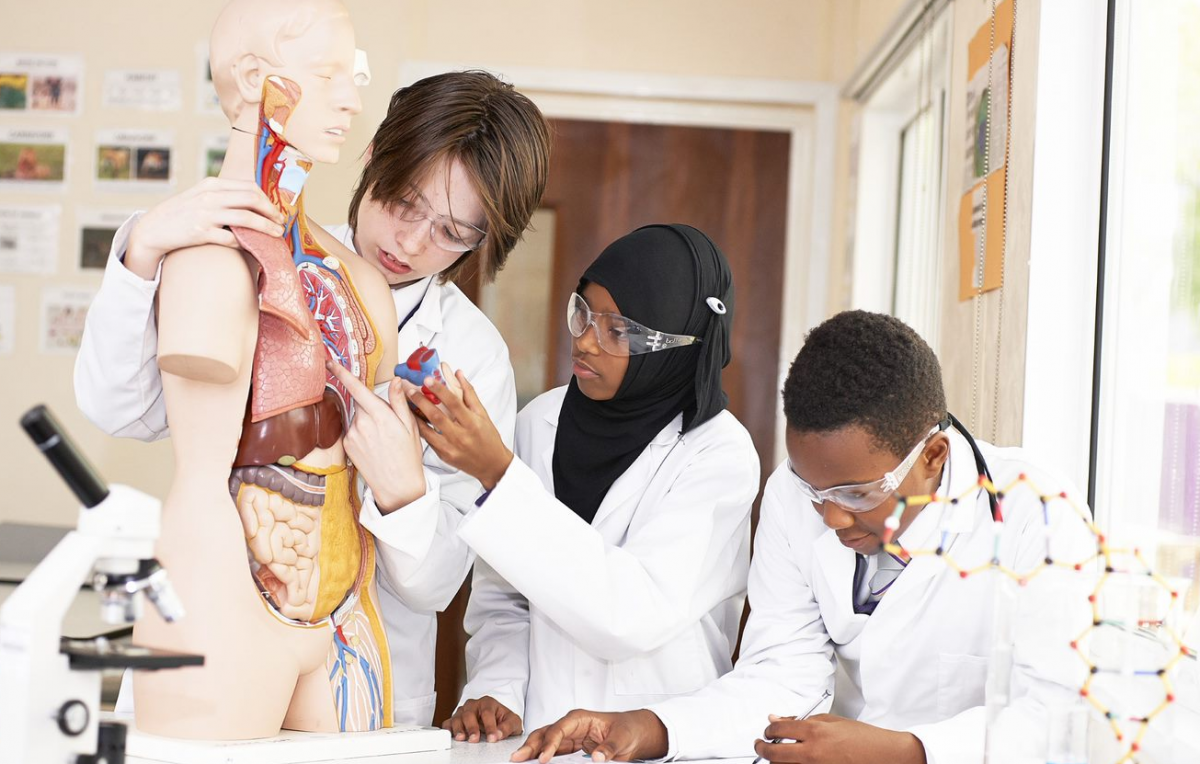 Jasper Green has worked in education for the past 15 years, and is now Head of Secondary Curriculum and Assessment at Ark. After studying Biological Sciences at the University of Oxford, he gained his PGCE and later a PhD in Molecular Biology and Biochemistry.
Jasper Green has worked in education for the past 15 years, and is now Head of Secondary Curriculum and Assessment at Ark. After studying Biological Sciences at the University of Oxford, he gained his PGCE and later a PhD in Molecular Biology and Biochemistry.
Jasper has worked as an examiner, teacher and head of department in the UK and abroad. He is passionate about teacher education and founded thescienceteacher.co.uk, a free website used by science teachers worldwide to inspire and develop their classroom practice.
It is great to see that the curriculum is well and truly back on the education agenda in England, with Ofsted’s Chief Inspector, Amanda Spielman, leading the charge. She comments: "A good school achieves a careful balance. Time is limited. Therefore choices need to be made about what to do when, how much depth to pursue... Most importantly, these decisions must be rooted in a solid consensus about what education should deliver for each pupil. What is the body of knowledge that a child needs so that they will flourish in the future and not be left behind?"
So what knowledge should a great curriculum contain? There is substantive knowledge – this is the knowledge produced by the academic subject. In science, this involves concepts which form the underpinning structure of the subject, e.g. respiration, evolution and the idea of a force. The list of substantive knowledge for subjects is well, substantial, and must be carefully sequenced over time. But we don’t always start with the easiest knowledge. Instead we must start with the most fundamental, helpful and extending knowledge.
For example, to understand breathing, our students first need to know how gas pressure works. This can seem a trickier place to start, but labelling lungs, ribs and muscles won't teach them much if you don’t understand that increasing the volume of an object will decrease its pressure, causing air to be pushed in (not sucked!) by a larger outside air pressure.
Substantive knowledge, when it connects to more substantive knowledge, creates understanding. Relate this knowledge to what you already know and you will create meaning (or misconceptions!) – the Holy Grail for any teacher or curriculum. This means that prior knowledge must be re-visited before introducing new ideas, and misconceptions should be actively diagnosed. But all this re-visiting takes time, and so a big part of curriculum design is about deciding what not to teach.
Then there is disciplinary knowledge. In science, this is the knowledge needed to collect, understand and evaluate scientific evidence. It's the scientific method, i.e. changing one variable whilst keeping everything else the same – and seeing what happens. We use this knowledge every day. Think back to when your TV remote last stopped working. First you banged it, then you wiped the sensor, finally you changed the battery. Each time you changed one variable (the independent variable) before measuring its effect (the dependent variable) whilst keeping everything else the same (the control variables); you see, science is useful!
Teaching this disciplinary knowledge can be hard, as ideas of the discipline often become lost when students struggle to simultaneously grasp substantive knowledge. At the same time, it’s difficult to identify control variables (disciplinary knowledge) during an investigation into photosynthesis, if you don’t understand the reaction itself (substantive knowledge). Get this delicate balance right, by carefully mapping the progression of both substantive and disciplinary knowledge, and you will find teaching and learning becomes a whole lot easier and more fun.
But knowledge and intellectual satisfaction must not be the end goal, as is too often assumed. Knowledge must serve a greater purpose. For the academic, this purpose is to pursue further research in order to find some truth. So what for our students? Yes, the pursuit of truth is important. But we also need our curriculum to provide students with the necessary knowledge to take actions to make individual lives, society and the world better. If students leave the bedroom light on, mock someone for having a disability or feel no responsibility to innovate or contribute during their careers, then the curriculum has failed – irrespective of what the GCSE results show.
Fortunately, these two goals are not incompatible. But to ensure that we are equipping our students with all the knowledge they need, our curriculums need careful planning, right from the start. And then we need to make sure that we don’t make the biggest of errors – the curriculum is not something on a piece of paper, nor stored on a Google Doc. The curriculum is something that is experienced in the daily lives of our students. In the words of Dylan Wiliam, "curriculum is pedagogy", so once we’ve considered what to teach we must then define how to teach it. I feel the best curriculums will work hard to do both.
If you'd like to get regular updates from Ark, our friends and our partners, including teaching tips and best practice, please sign up for our newsletter: arkonline.org/newsletter

